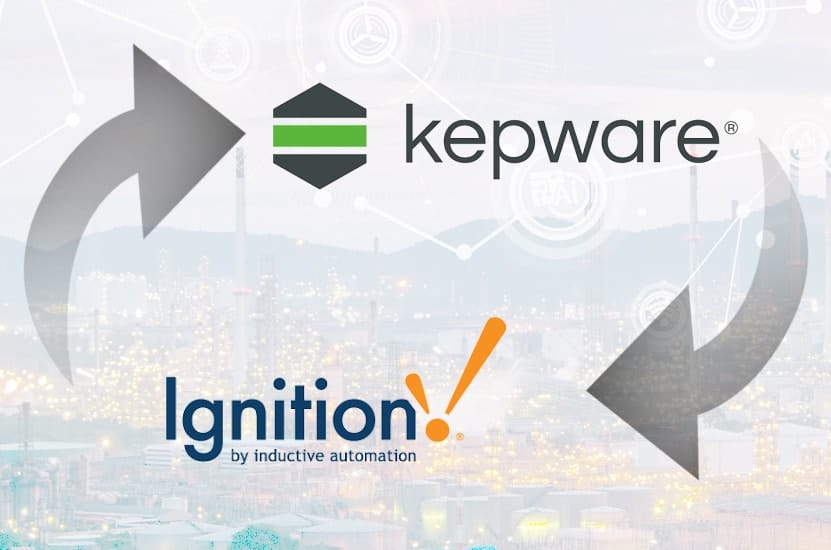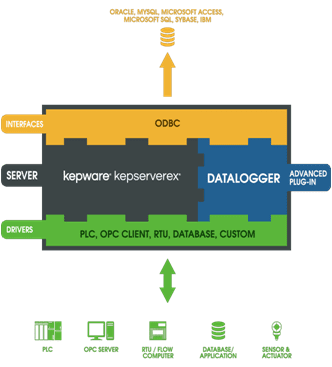


Earlier versions might have somewhat different defaults. The default hold periods differ between OPC Classic and OPC UA and depend on the operation(s) performed, but do not exceed 60 seconds total in version 5.32. If this is not what you observe, pls provide a way to reproduce the issue. Therefore if you are no longer calling operations such as OPC reads and writes, AND you have explicitly unsubscribed from the subscriptions you have made, you should see that after the hold period elapses, our client (you application) disconnects from the target OPC server. If you do one-time operations such as ReadXXXX, WriteXXXX, we will connect and then remain connected for a "hold period", then disconnect unless there is another request or a subscription (see above).
#OPC KEPWARE SOFTWARE#
If you subscribe (I guess that's what you call "listen to") an item/monitored item ("tag"), our software will attempt to remain connected until you explicitly unsubscribe using one of ther UnsubscribeXXXX methods. The other (less likely) explanation is that it refers to an OPCItem (in OPC Classic), or an OPC UA monitored item.

Additional suites can be licensed on demand as connectivity needs evolve.I cannot know for sure what the Kepware message "Active connections still exist." refers to, but you are right, it probably refers to an reference to an OPCServer object (in OPC Classic) or an OPC UA Session, which are "global" connections, not to a tag. These products have been bundled into suites by vertical industry, device manufacturer, or industrial application for the convenience of our customers.
#OPC KEPWARE DRIVERS#
Supports update by exception (Watchdog)Ī suite is a collection of drivers and plug-ins for KEPServerEX.Allow connectivity to OPC servers using different interfaces that are supported by clients, such as DDE, Wonderware SuiteLink, GE Intelligent Platforms (GE Fanuc) NIO.Allow connectivity to multiple OPC servers from clients that do not support multiple connections or handle multiple connections well 'Kepwares ClientAce 4.0 appears to be a tool that developers could leverage to address their migration challenges and accelerate OPC UA adoption, taking advantage of its security benefits as well.



 0 kommentar(er)
0 kommentar(er)
